In addition to its lively and growing undergraduate programme, the Department of Modern Languages and European Studies at Reading has long boasted top-ranked post-graduate programmes as well. As applications continue to roll in for the 2015-2016 academic year, we thought we’d ask one of our current post-graduate students, Maria Tomlinson, to fill us in on how and why to apply for an MA or PhD at the University of Reading.
Maria has a first-class BA in French and Modern Greek Studies, as well as an MA in French Literature and Culture, from Kings College London. After finishing her MA, Maria worked as a lectrice at Nanterre University in 2013-14. She has published a number of online articles about the Year Abroad programme, focusing both on her studies in Montpellier, France, and on her time at Aristotle University in Thessaloniki, in Greece. Now, she’s pursuing a PhD in Reading. Maria has great advice for anyone considering post-graduate study:
I feel that I have really started to settle in to my new life as a PhD student of French literature at Reading. I am really pleased with the topic I have chosen: the representation of taboo and trauma relating to the female body in Algerian and Mauritian literature. This includes examining the representation of a multitude of taboos such as abortion, rape and menstruation. As well as examining novels, I am also looking at history, politics and trauma theory. I am enjoying the early stages of my PhD which has, so far, involved many a day at the British Library reading and taking notes. I am being supervised by Dr Julia Waters as part of a co-supervised PhD between Reading and Bristol universities, funded by the Arts and Humanities Research Council (AHRC).
I spend more of my time at Reading where, alongside my supervisions, I have been attending weekly Arabic classes to complement my study of Algerian literature. Studying Arabic is really fun, and I find writing the beautiful script quite therapeutic. As a lover of languages, I am very happy that Reading has offered me the opportunity to learn a new language – my first non-European one. I have so far had three supervisions. I always fill in a supervision form before each session as I can plan what I need to ask and think about how I would like to take my research forward. Discussions so far have mainly been centred on relevant bibliography but we have also discussed my plan where I have arranged my chapters by taboo e.g. my chapter on the pregnant female body involves taboos such as contraception and miscarriage.
You may be wondering why I have supervisors at two institutions. Well, I had the fortune of being in the first year of applicants for PhD funding from the AHRC that was not organised via an individual department at a particular university but by consortia. The University of Reading is part of the South West and Wales Doctoral Training Partnership (SWW DTP), which includes several other universities such as Bristol, Bath and Southampton. This means that applicants must apply to two universities, therefore benefiting from having two supervisors. Furthermore, successful applicants have access to classes and facilities at all of the universities across the consortium.

Corsham Court, site of the South West and Wales Doctoral Training Partnership induction on 30 October 2014
So why did I decide to apply to Reading through the SWW DTP? Firstly, the consortium made it possible for me to do an interdisciplinary project that I could not have done if I were only at one institution. I needed a supervisor for the Mauritian side of my research and another for the Algerian side, a combination which likely not possible at any one institution. I also found the SWW DTP appealing in that they emphasised that undertaking a PhD as part of the consortium would increase a student’s employability. They offer training sessions as well as their links with non-higher education partners, such as the National Trust and the BBC. I was also attracted by the fact that successful applicants were expected to do an internship for six months which the AHRC would fund if it were unpaid. I welcome any relevant work experience, whether or not it is in a higher education setting. I am extremely keen to become a lecturer and I was convinced during the application process, that being part of the SWW DTP would help me to achieve this very ambitious aim.
I realised that I wanted to do a PhD during my MA at King’s College London, as it confirmed my love for literature. More importantly, I discovered that there was a gap in the field of postcolonial women’s writing that I knew would benefit the field if it were filled. I knew that I needed to persuade a funding body that my project was worthwhile.
My aspirations to become a lecturer were further reinforced by my experiences as a lectrice, an English language teacher at a French university, in Paris. Despite being only a lectrice, whose responsibilities are normally limited to leading oral classes, I was asked to give lectures in British civilisation and teach literary translation. I had the freedom to choose all the topics and texts myself – very good practice for the future if I am asked to choose texts for my own module: this is the dream. I relished talking in front of a class and sharing my enthusiasm. It gave me so much pride to mark the final papers of the students who I could tell had really engaged with the class and had studied hard. I delighted in preparing for the lectures and was thrilled when they were met with an enthusiastic response by the students. I had the added challenge that, overall, my students’ English was not at a particularly high level and so I had to make sure I presented the lectures clearly and held their attention. If you would like to read more about my experiences as a lectrice and consider applying yourself, my article on the thirdyearabroad.com website provides further details . The website also includes an article I have written on the PhD application process as well as many others relating to language study.
Finally, the main reason I applied to the SWW DTP was that I had a very positive experience when I enquired about starting a PhD at Reading. Dr Julia Waters was very encouraging throughout the whole application process and was always available to offer very useful advice, even phoning me while I was in Paris to give me interview tips. Reading and the SWW DTP were my first choice and hence I was absolutely ecstatic to be offered the funding.
Even though at the moment the SWW DTP is only in its first year, and I am sure there is much more to come, I would certainly recommend that you apply to be funded by this consortium. Not only would you have two supervisors from a choice of 8 universities, but also you would have access to a huge amount of training and even an internship. In today’s job market, whether you desire to be in academia or not, the SWW DTP would certainly provide you with a competitive edge.
To learn more about pursuing a Masters Degree or a PhD in Modern Languages at the University of Reading, visit the Graduate School website as well as the Homepage of the Department of Modern Languages and European Studies. We offer both Post-Graduate Taught and Post-Graduate Research degree courses. To keep up with all of the Department’s research, as well as to receive updates from our students, staff, and alumni, follow this blog, like us on Facebook, and subscribe to our Twitter feed.
If you would like to receive regular updates from our blog, with the latest news about languages at Reading, please enter your email address below:
[subscribe2]





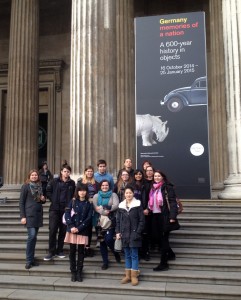


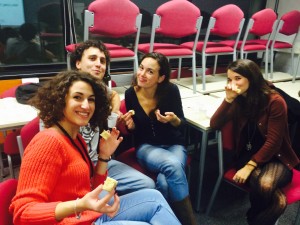
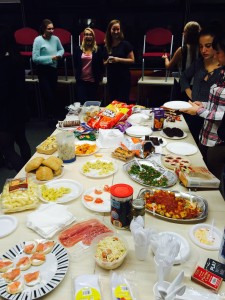

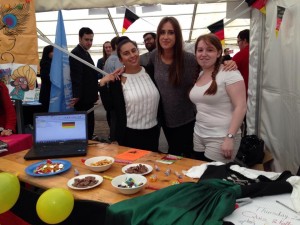



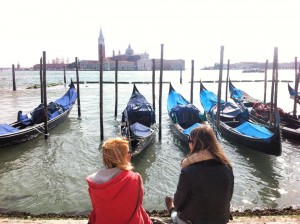










 Job prospects for new graduates in the early ’90s were scarcely better than those of graduates during the recent economic downturn. Training schemes were closed by big companies, lots of people were in precarious temp roles and still others were working for free in the hope of getting their big break. It is an all too familiar picture.
Job prospects for new graduates in the early ’90s were scarcely better than those of graduates during the recent economic downturn. Training schemes were closed by big companies, lots of people were in precarious temp roles and still others were working for free in the hope of getting their big break. It is an all too familiar picture. As to circumstances, the end of 1995 was marked by a general strike in France. The trains stopped and so did the post. Fortunately, there were no power cuts in western France, though I understand not all areas were so lucky. There were marches in the streets and the pictures from Paris led concerned friends and relatives to enquire whether I was OK. All was fine, Poitiers wasn’t Paris and nor was 1995 1968.
As to circumstances, the end of 1995 was marked by a general strike in France. The trains stopped and so did the post. Fortunately, there were no power cuts in western France, though I understand not all areas were so lucky. There were marches in the streets and the pictures from Paris led concerned friends and relatives to enquire whether I was OK. All was fine, Poitiers wasn’t Paris and nor was 1995 1968.